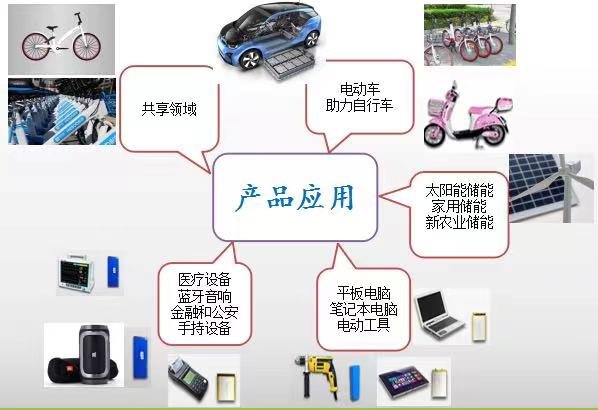Lithium Polymer batteries, commonly known as LiPo batteries, have transformed the way we power modern devices. From smartphones to drones, these batteries are at the heart of numerous technological innovations. But what exactly makes LiPo batteries so special? Why are they preferred over other types of batteries? In this comprehensive guide, we’ll dive deep into the world of Lithium Polymer batteries, exploring their structure, benefits, applications, and best practices for safe use.

Understanding Lithium Polymer Batteries
What is a Lithium Polymer Battery?
A Lithium Polymer (LiPo) battery is a type of rechargeable battery that uses a polymer electrolyte instead of the liquid electrolyte found in traditional lithium-ion batteries. This polymer electrolyte is typically a gel-like substance, which allows the battery to be more flexible in terms of shape and size. Due to their unique construction, LiPo batteries offer significant advantages in energy density, weight, and form factor.
How Does a LiPo Battery Work?
At the core of every LiPo battery are two main components: a positive electrode (cathode) and a negative electrode (anode). These are separated by the polymer electrolyte, which facilitates the movement of lithium ions between the electrodes. During charging, lithium ions move from the cathode to the anode, storing energy. When the battery is in use, the ions move back from the anode to the cathode, releasing the stored energy and powering the connected device.
Advantages of Lithium Polymer Batteries
1. Lightweight and Compact Design
One of the most significant benefits of LiPo batteries is their lightweight and compact design. Because they use a polymer-based electrolyte, manufacturers can make LiPo batteries in various shapes and sizes, which is why they are commonly found in portable devices such as smartphones and tablets. Their flexibility allows them to fit into slim, sleek devices without sacrificing power.
2. High Energy Density
LiPo batteries are known for their high energy density, which means they can store a large amount of energy relative to their size. This makes them ideal for devices that require long battery life but cannot accommodate bulky power sources, such as smartwatches, drones, and electric vehicles.
3. Fast Charging Capabilities
Compared to other battery types, LiPo batteries support faster charging times. This is especially important in industries where downtime for recharging must be minimized, such as in commercial drones or high-performance RC vehicles.
4. High Discharge Rates
LiPo batteries can provide high discharge rates, meaning they can release energy quickly when needed. This makes them perfect for applications that require bursts of power, such as drone takeoffs, electric cars, and remote-controlled vehicles.
5. No Memory Effect
Unlike older rechargeable batteries, such as Nickel-Cadmium (NiCd), LiPo batteries do not suffer from the memory effect. This means they do not lose capacity if they are recharged before being fully discharged, making them more convenient for users who need flexible charging schedules.
Disadvantages of Lithium Polymer Batteries
While LiPo batteries offer many advantages, they aren’t without their drawbacks. Understanding these limitations is essential for getting the most out of these powerful energy sources.
1. Shorter Lifespan
LiPo batteries have a limited number of charge cycles. With regular use, their capacity diminishes over time, meaning they will eventually lose the ability to hold a full charge. On average, a LiPo battery lasts for about 300 to 500 charge cycles before its performance begins to degrade.
2. Higher Cost
Compared to other types of rechargeable batteries, such as Nickel-Metal Hydride (NiMH) or NiCd batteries, LiPo batteries are typically more expensive. While the higher cost is often justified by their superior performance, it can still be a consideration for those on a budget.
3. Potential Safety Hazards
When mishandled, LiPo batteries can be dangerous. Overcharging, puncturing, or exposing them to extreme heat can lead to swelling, leakage, or even fire. Therefore, proper care and handling are crucial when using these batteries.
Common Applications of Lithium Polymer Batteries
1. Drones and UAVs
One of the most popular uses for LiPo batteries is in drones and unmanned aerial vehicles (UAVs). These devices demand lightweight, high-capacity batteries that can deliver bursts of power for takeoff and maintain steady energy output during flight. LiPo batteries are the perfect solution for both hobbyist and commercial drones.
2. Smartphones and Tablets
In the world of consumer electronics, LiPo batteries power an array of devices, from smartphones and tablets to laptops and wearable technology. Their slim profile and high energy density make them ideal for devices that need to be both portable and powerful.
3. Electric Vehicles (EVs)
While electric vehicles (EVs) often utilize lithium-ion batteries, certain smaller EVs and personal transportation devices, such as eBikes and electric scooters, use LiPo batteries. These batteries provide a balance of performance, weight, and energy efficiency for such applications.
4. Remote-Controlled Vehicles
In the world of hobbyist RC cars, planes, and boats, LiPo batteries are the go-to choice. Their ability to deliver high discharge rates ensures that these vehicles can achieve high speeds and rapid acceleration, making them perfect for high-performance applications.

How to Safely Handle and Store Lithium Polymer Batteries
Due to the potential hazards associated with LiPo batteries, it’s important to follow best practices for handling and storage to ensure safety and longevity.
1. Use a Proper Charger
Always use a charger specifically designed for LiPo batteries. These chargers are built to prevent overcharging, which can lead to battery swelling or fire. Using the wrong charger can be dangerous and significantly reduce the battery’s lifespan.
2. Monitor Charging
Never leave a LiPo battery unattended while charging. It’s essential to keep an eye on the battery to ensure it doesn’t overheat during the charging process. Many users also use fire-resistant charging bags to add an extra layer of protection.
3. Proper Storage Conditions
When not in use, store LiPo batteries in a cool, dry place, ideally at around 50% charge. Storing them at full charge for extended periods can reduce their lifespan, while completely discharging them can cause permanent damage.
4. Avoid Physical Damage
LiPo batteries are sensitive to physical damage. Avoid dropping them or exposing them to sharp objects. If a LiPo battery swells or shows signs of damage, stop using it immediately and dispose of it properly.
How to Extend the Lifespan of Lithium Polymer Batteries
While LiPo batteries naturally degrade over time, there are several steps you can take to extend their lifespan and get the most out of your investment:
1. Avoid Overcharging and Deep Discharges
LiPo batteries should not be fully discharged or overcharged, as this can significantly reduce their lifespan. Most LiPo chargers come with built-in safety features, but it’s always good practice to monitor battery levels and avoid pushing them to their limits.
2. Balanced Charging
If your LiPo battery has multiple cells, it’s essential to use a balanced charger that ensures each cell is charged evenly. This prevents individual cells from being overcharged and extends the overall lifespan of the battery.
3. Store at the Right Voltage
When storing LiPo batteries for long periods, aim to keep them at around 3.8V per cell. This storage voltage helps preserve the battery’s capacity and prevents long-term damage.
4. Keep Away from Extreme Temperatures
LiPo batteries are sensitive to extreme heat and cold. Exposing them to very high temperatures can cause them to swell, while cold temperatures can reduce their efficiency. Always store and use them in environments within the recommended temperature range.
The Future of Lithium Polymer Batteries
As technology advances, we can expect to see even more improvements in LiPo battery technology. Researchers are constantly working on ways to increase energy density, improve safety, and reduce costs. In the near future, we may see LiPo batteries powering even more innovative devices, from next-generation electric vehicles to wearable electronics that push the boundaries of what is possible.
Conclusion
Lithium Polymer batteries are a powerful and versatile energy solution, offering a range of benefits from lightweight design to high energy density. However, with great power comes the need for responsible handling. Understanding how to properly use, store, and care for your LiPo batteries is essential for maximizing their lifespan and ensuring your safety. Whether you’re using them in drones, smartphones, or electric vehicles, LiPo batteries are an integral part of modern technology, and their importance is only expected to grow.
Guangdong Yungbang New Energy Co., Ltd. was established in June 2013. Currently, we have a factory covering an area of 18,000 square meters and employ over 500 staff members. We possess multiple independent intellectual property rights and are recognized as a national high-tech enterprise specializing in the research, development, design, production, and sales of lithium-ion battery cells and battery packs.
FAQ
1. Can LiPo batteries be over-discharged?
Yes, LiPo batteries can be damaged if they are discharged below their recommended voltage. It’s essential to monitor your battery’s charge level and avoid letting it drop too low.
2. Are LiPo batteries safe to use indoors?
When used correctly, LiPo batteries are safe indoors. However, it’s crucial to follow proper safety protocols during charging and storage to prevent any incidents.
3. How long does it take to charge a LiPo battery?
Charging times for LiPo batteries vary depending on the battery’s capacity and the charger used. On average, it can take anywhere from 30 minutes to 2 hours to fully charge a LiPo battery.
4. What happens if a LiPo battery swells?
A swollen LiPo battery is a sign of internal damage and should not be used. It is important to safely dispose of swollen batteries at a proper recycling facility.
5. Can LiPo batteries be recycled?
Yes, LiPo batteries can and should be recycled. Never dispose of them in regular trash, as they can be harmful to the environment and pose safety risks. Take them to a designated battery recycling center.

